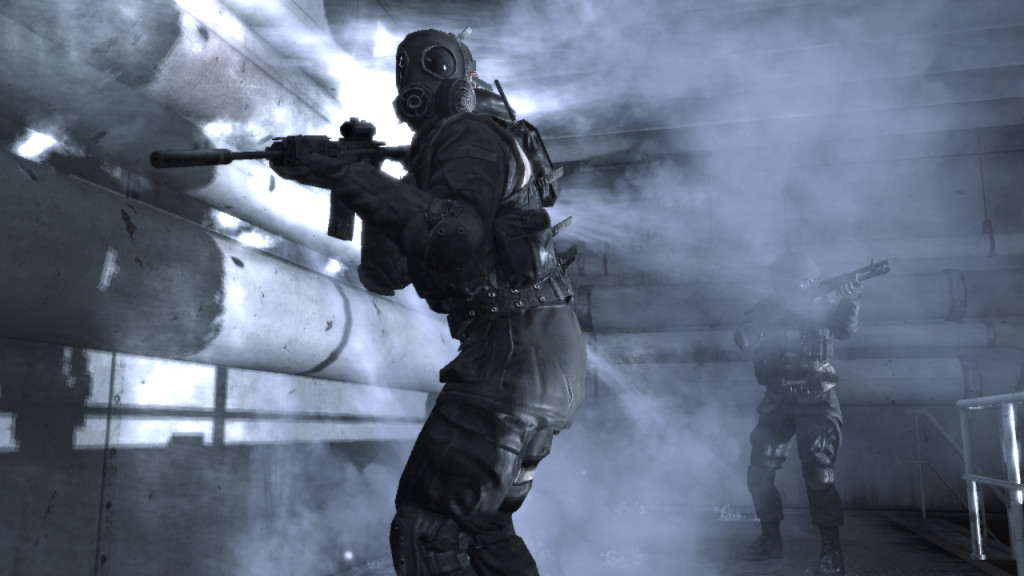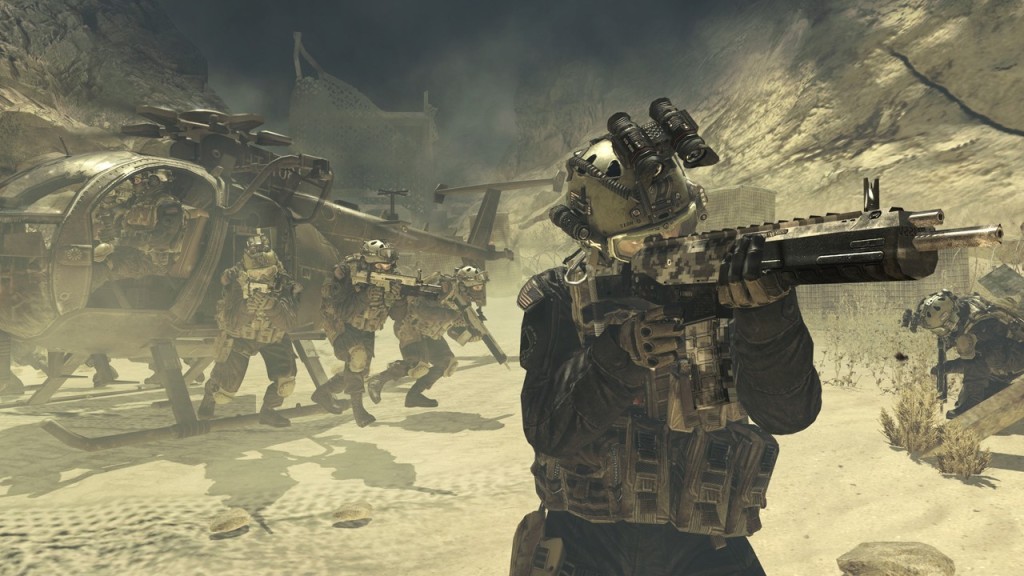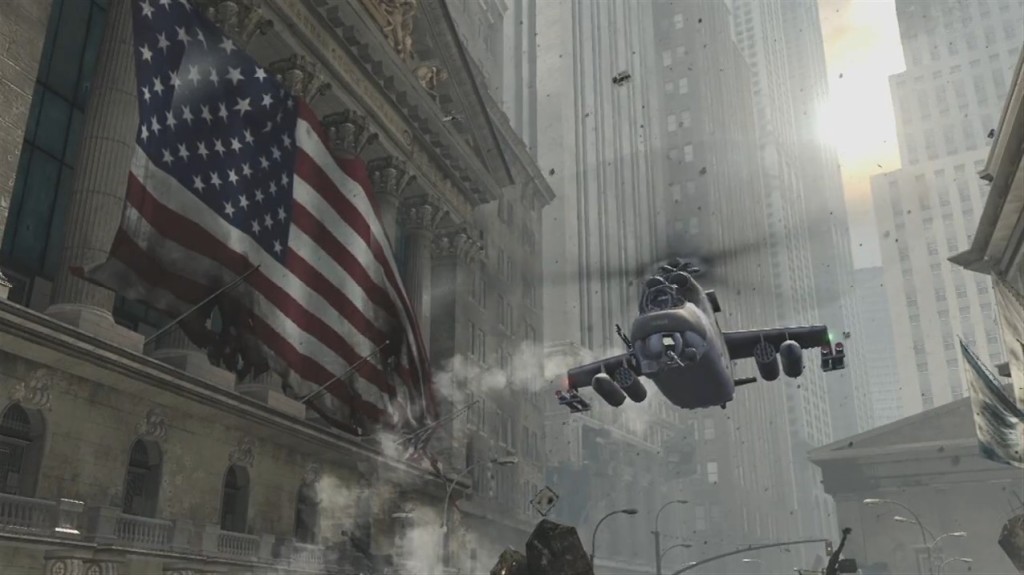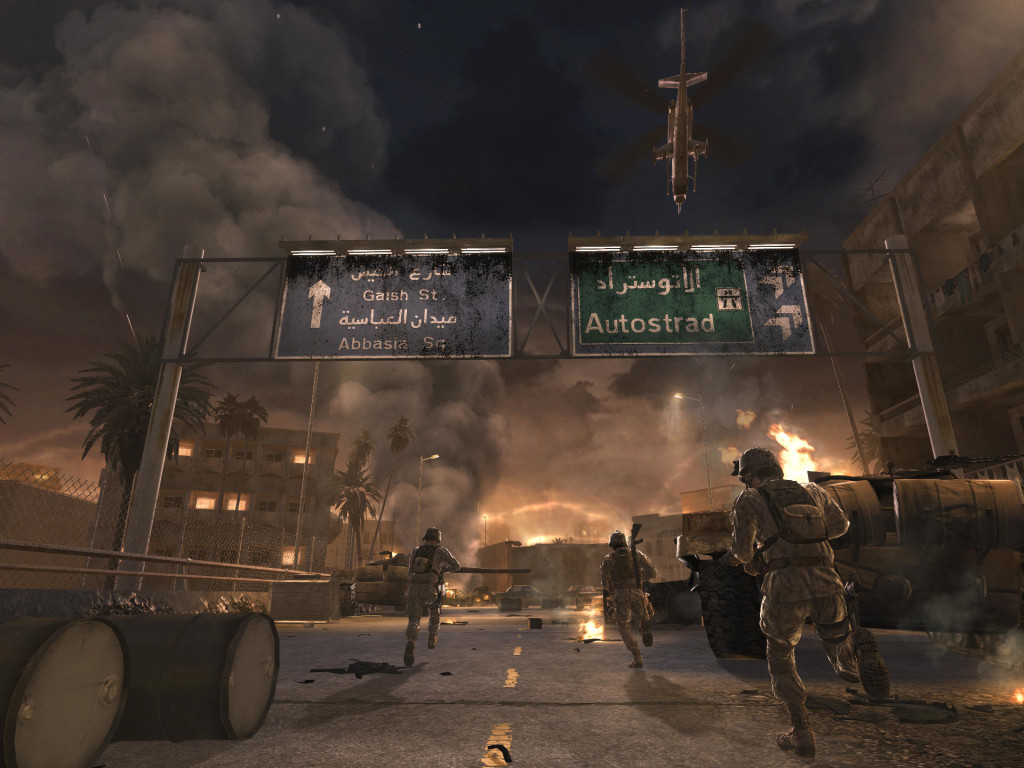Today we have a very special interview! On Monday, I was talking about the proliferation of video games and how they’re stealing more and more butts in seats from the box office, particularly the under 25 crowd. But fear not. Someone has to write these video games. And that means there are more jobs open for writers. In order to prepare you for that potential job, I brought in the head writer of one of (if not THE) biggest video game around, Call of Duty: Advanced Warfare. John MacInnes broke onto the scene by winning a Nicholl Fellowship in 2012. I actually reviewed his winning script on the site, which you can check out here. Let’s find out how that led to this job, and then ask John what it takes to write a video game.
SS: First thing’s first. You won a Nicholl Fellowship in 2012 for your script “Outside The Wire.” Can you tell us what your writing career was like up to that point?
JM: I always wanted to make movies. My first job was as a film projectionist in my local flee pit in rural England. I studied film making at university (in the same year as Steve McQueen, 12 Years A Slave, etc). Initially I was more interested in directing and spent a lot of time making short films and trying to get a feature off the ground but I eventually ended up in LA completing a Masters Degree in screenwriting at UCLA.
So I’d written a number of scripts before winning the Nicholl – maybe about eight? – I had some interest in my work but it wasn’t until I won the Nicholl that things started to take off. Writing a decent script is one thing, getting that script read and getting interest in that script is a whole other battle. I entered the Nicholl on a whim just hours before the deadline and didn’t think too much about it until I got the call telling me I was a finalist. So, you just never know what’s going to stick. The only thing I have some kind of control over are the words on the screen in front of me, so I focus on that and hopefully the rest will take care of itself.
SS: You say you never know what’s going to stick, but can you identify anything in “Outside the Wire” that made it stand out from your other scripts?
JM: It’s hard to say. The script I wrote before Outside The Wire was a family comedy which was only optioned after winning the Nicholl. Certainly, Outside The Wire is a more immediately compelling script but then again it is a high stakes action thriller. I think Outside The Wire does create a specific world that feels authentic. When I show up to meetings people are sometimes surprised that I’ve never served in the army or gone to Iraq. I like detail. I like specificity and I love to be immersed in a world. Those are all qualities that work well in video games.
Glen Schofield, the creative mind behind Advanced Warfare, is a very detail oriented guy and if you think about it you have to be. Every single element in a video is designed and created – in 3D! You can walk around in a game and just look at stuff, and if you do it’s going to look and feel like an authentic functioning thing. Having said all of that, a world you create is totally meaningless unless you have compelling characters who inhabit that world. I just finished a movie adaption of Rudyard Kipling’s Kim, an action adventure set in India at the end of the 19th century. It’s a fascinating world but what makes it compelling is Kim, the 16 year old boy at the heart of the story
SS: So I’m assuming Outside the Wire is how you got your agent.
JM: Yeah. When you win the Nicholl you get to have that day all writers dream of when everybody in town wants to read your script. It’s all a little overwhelming. I wasn’t repped at the time but a friend was managed by Brillstein so I met with Margaret Riley and Naren Desai at Brillstein and pretty much agreed to go with them on the spot. I didn’t have anyone to compare them to but we hit it off and I haven’t looked back. Margaret then introduced me to my agent, Lars Theriot, at ICM. I’ve heard tales of writers cycling through managers and agents to find the right one but I’ve been very happy with Margaret and Lars, they’ve set me up with great meetings and most importantly they’ve kept me employed.
SS: You’re right. Most writers cycle through a lot of managers and agents before they find the ones who are right for them. For future writers lucky enough to be in that position of choosing a manager/agent, what advice can you give them on picking the right one?
JM: There’s a practical matter of can your team get your work read by the people that are going to employ you. If you just look at their other clients it’ll give you an idea. I think it also depends on what sort of relationship works for you. Some managers are more like producers and are very involved in your creative process, others are more about guiding your career and connecting the dots. I like people who see the big picture and who are invested in your career for the long term. It’s also not just about what you see in them. It’s a two-way street. I’m on the lower rungs of success. If they’re going to go into bat for me, I have to make sure I’m going to make a good impression on whoever I’m meeting.
SS: Okay, so let’s get to it. How does a writer get a job writing for a video game? Where do you go?
JM: Call Of Duty came through my manager. Suzanne Todd is a consulting producer to Activision. She read Outside The Wire and thought I’d be perfect for the new title. My script is an action thriller about a private military company working in Iraq so if you’ve played the campaign in Advanced Warfare you’ll know it covers similar themes and issues. Bizarrely – because I don’t think of myself as a military nut – I’ve acquired a lot of knowledge about special forces. One of my first jobs out of college was as a researcher/story consultant for the BBC who were developing a drama series about the SAS (for Paul Greengrass when he just ‘just’ a tv director). It was my job to read every ‘kill and tell’ book ever written about the SAS and go and meet with a bunch of those guys.
So Activision loved my script and I had a pretty good knowledge of subject, but I wasn’t much of a gamer at the time. I’d played CoD a few times but it turned out they wanted someone specifically from the movie world to bring greater depth to their characters and give their campaign a more cinematic feel, rather than someone who was going to improve their game play – those guys have that covered! I’m sure they interviewed a lot of other writers – but you never know what you never know – I had, I think, three meetings so I knew I was getting close, and then I got the call saying I had the job.
SS: That’s awesome. So how much emphasis is put on the writing in one of these big games compared to areas like gameplay, graphics, etc.?
JM: It’s hard to answer that because the games industry is evolving all the time and every game is different. Yes, first and foremost, it’s a game, so traditionally writing has been more of an afterthought, but the guys at Sledgehammer were really keen to break new ground. Advanced Warfare is the first next gen CoD title, which means the level of resolution is approaching that of a movie (if you can even compare a 2D passive experience with a 3D immersive experience). With that level of photorealism comes the opportunity to create emotionally engaging character performances on par with anything you’d see in a movie or on tv. So they had to take all the performance aspects up a notch and that’s why I think one of their smartest decisions was hiring Kevin Spacey to play our bad guy.
The Last Of Us came out last year and was a critical and commercial success. It represents a paradigm shift in the way the games industry thinks about narrative and story and really showed that a video game can have a story as complex and developed as a movie and I think that trend is just going to continue. CoD is mostly known for it’s multiplayer but it’s the campaign (the story) that give the game its identity and it gives you the world. I think Eric Hirschberg (Activision CEO) made a smart move to sell Advanced Warfare with Kevin Spacey’s character, Jonathan Irons the CEO of the Atlas Corporation. You can’t really sell the game play in a commercial but you can sell an idea, a theme, through a character. It’s funny because I was so busy when Advanced Warfare came out that I actually forgot until someone sent me a link to Kevin Spacey on Jimmy Fallon talking about the game and showing a scene. Has that ever happened before? A Hollywood actor promoting a video game? Got to say it was pretty cool.
SS: That’s spec-tacular. Can you detail the writing process? When do you come in and what is it your job to do?
JM: Let me just say that the way games and movies are made is very different. I was brought on at the early stages to work on the story but the game was already being built, so I think there are aspects of game production that are more like a large animated movie – it takes so much time and work to build the thing that you have to start building right away. It’s a little like building the sets before you’ve written the scene, but that’s just the nature of the beast. Over the three years it takes to make every element, either game play or story is subject to change. These changes could be because of all sorts of reason that have nothing to do with the story, so the sands are constantly shifting.
It’s also a very collaborative process. As well as the creative heads, there are the level designers who have a big input, so it’s important for me as the lead writer to understand their creative process and work together as a team. But I’ve never seen game play and narrative as mutually exclusive and I think we all learned a lot from each other.
Another difference between writing a movie and writing a big AAA game is the absence of a complete script. The campaign is made up of 15-20 levels. Each of these levels has a cut-scene or load movie. Traditionally, the cut scenes were full of exposition – basically cramming the story in there – but on Advance Warfare we really wanted to integrate the storytelling into the game as a whole and the cut scenes play like a scene in a movie rather than endless graphic information. So, there was time spent on developing the characters and story as we go. Each of the levels is like a set piece in itself but must function for the narrative as a whole (even though they might get written out of sequence). It’s a very interesting creative process, quite different from a movie.
SS: Okay so, just to get into a little more detail – What is the terminology for every component you’re responsible for writing? For example, do you break it down into a) overall narrative, b) episode c) level d) cut scene, e) in-scene. It there a hierarchy like that?
JM: All of the above. But each game has its own requirements. There’s not a set way of doing anything and the terminology for everything is still up in the air. Every game developer has found their own groove for what works for them. So what I’m really doing is bringing my story skills to each and everyone of these situations. It’s challenging and rewarding. Screenwriters and developers speak a different language. Level designers come at the problem from a different angle than screenwriters. The skill is understanding how each elements works in relation to the whole. Understanding the form is absolutely crucial and, as I said, each game is different and presents unique creative problems. I love it when I can solve a gaming problem with a story/narrative solution. That’s what makes it interesting.
SS: With screenplays, obviously, you have a very structured narrative (first act, second act, third act). Is it similar with a video game? A game lasts so much longer so I’m assuming a traditional structure doesn’t enter into the equation. Are you essentially inventing a new narrative approach when writing a video game?
JM: The three act structure is very much part of the equation for the campaign, but it’s more akin to a mini series in its size and scope. There’s about 10 hours worth of story in there! But a lot of it – obviously – is game play. In any level you can only really hit a couple of narrative points without losing the player.
SS: What about character in video games? Is there a difference in approach when writing characters? Or is it similar to writing features?
JM: I approach it in the same way I do a movie. Game developers and screenwriters tend to approach character from opposite ends. I always start from inside – motivations, flaws etc – and the way a character looks and moves emanates from that. Gamers tend to see character only from the outside. But that’s exactly what screenwriters can bring to the game.
SS: What’s the biggest difference between writing a script and writing a video game?
JM: Point of view. It’s interesting because this is an evolving on-going discussion. CoD is a first person shooter so pretty much everything you see and experience is through a character who is also the player… but you never speak. We got around this in a number of interesting ways. One, we employed a VO from the protagonist in some of the cut scenes (you also get to see the protagonist in the cut scenes). Two, your supporting characters, foils and antagonists become really important as proxies for your protagonist.
It’s an interesting philosophical debate that cuts right to the heart of narrative and how we create meaning through human interaction and it’s being played out in every new innovative game that comes out. I’m currently writing a really cool game that is all about the writing with branching story lines and is from a third-person POV. I’m also working on a virtual reality project that just blows my mind. I can’t talk about either of those projects because they haven’t been announced but I could wax on for days about these things.
SS: Is it more work writing a video game as opposed to a script or less?
JM: It depends on the game. The game I’m writing is like writing a six hour mini series for tv.
SS: Finally, the question I’m sure every writer is interested in. How is the payment in video games compared to the payment in writing traditional screenplays? Comparable? Less? More?
JM: It’s a good question. The games business does not have the precedents that have been established in the movie business over a hundred years or so. Traditionally, the writer in video games is less valued than in the movie business but I think that could change as the value of the writing becomes established. I came to games from the movie business so I get paid movie rates and thankfully I have a great team to fight for that!
It’s also hard to work out a deal because the amount of labor involved varies so much. I’ve been paid for the amount of hours and for the amount of pages, it just depends (must drive my lawyer crazy!). But rates are declining across the board. If it’s just about the money, don’t become a screenwriter. It’s too crazy. I’m just happy to be doing what I love. I’ve done my fair share of crappy jobs in my life and this ain’t one of them. I’m grateful for any opportunity to break new ground and create really cool stuff. It feels to me like video games are where movies were at with the advent of sound. In 1927 the Jazz Singer changed the business over night simply by talking. A little over a decade later you have Citizen Kane. These are exciting times. Who knows what games business will look like in ten years time, but I know I want to be part of it.
I know John’s busy but I think he’s going to try to answer some questions in the comments. I can’t promise anything, but if you’re wondering something, ask away.





